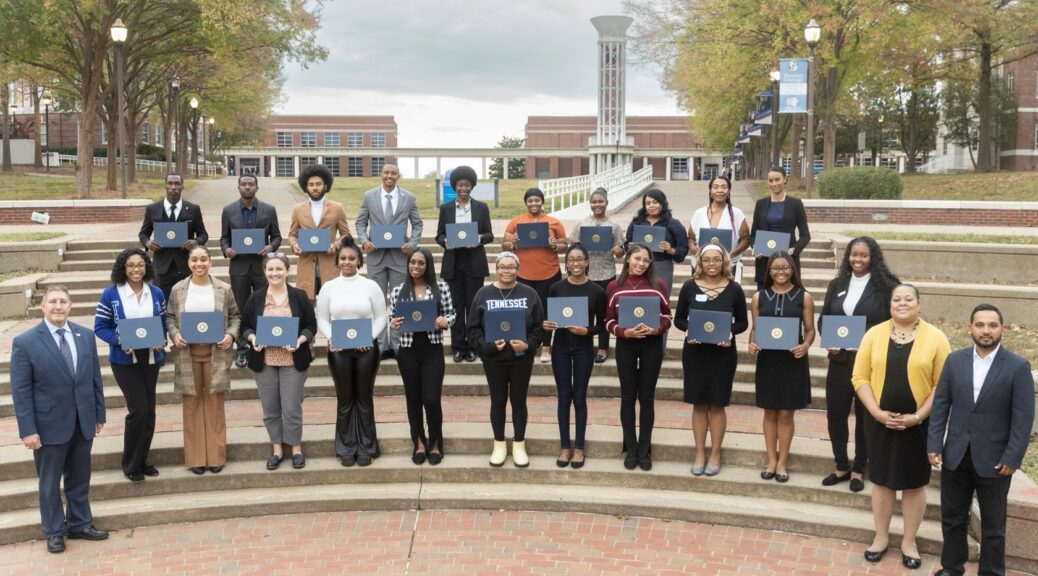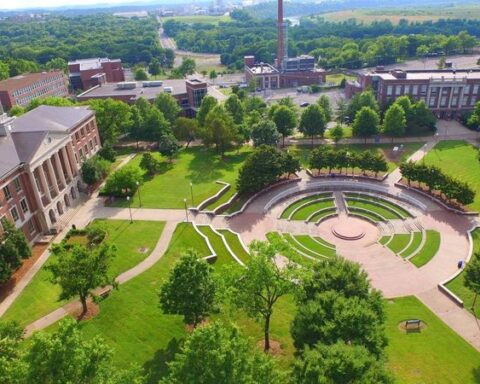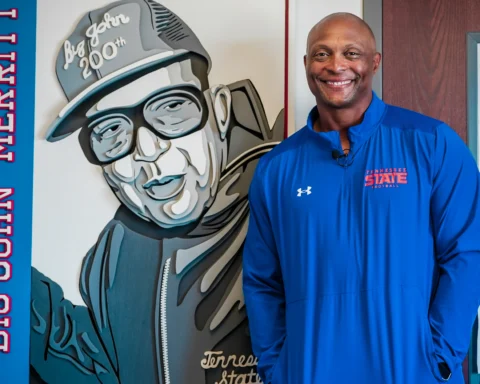By Emmanuel Freeman
Tennessee State University has the distinction of having the nation’s first-ever FBI Collegiate Academy. The academy gives students a behind-the-scenes look at careers with the federal agency and how it operates. Twenty-one students participated in the program, following a rigorous registration process.
The select group attended the academy’s first training session conducted by Douglas M. Korneski, Special Agent In Charge of the FBI Memphis Field Office. Students, who ranged from sophomores to seniors in various disciplines, received an overview of the FBI, and participated in drills on crime scene investigation, intelligence program presentation, and crisis negotiation and management. The training concluded with resume and interviewing tips from the experts.
Lia Barnett, a criminal justice major, and David Allen III, a political science major with a minor in computer science, were among those who participated in the academy. Barnett’s career goal is to join the FBI, while Allen is open to employment in federal law enforcement. They said the academy was “eye opening.”
Today, I have learned the steps I need to take to get to the FBI, which has been a longtime goal of mine,” said Barnett, of Cincinnati. “I have learned the background and certain facts that not everybody would know. The academy was educational, and I am extremely happy to be a part of it and to know that my university was selected for this first academy.”
For David, of Memphis, he said the workshop cleared out many myths he had heard about the FBI.
“We hear a lot about crime scene but today was eye opening. It was amazing to see how footprint and fingerprints can be detected with stuff like paper,” he said “I actually grasped that concept. The hands-on activities were very helpful.”
Agent Korneski said the goal of the academy was to bring about more awareness to the FBI’s operation, and to recruit top candidate from all sectors.
“For a number of reasons, the FBI has been making a lot of push from a recruitment standpoint, to attract more females and minority candidates to have our organization better reflect the communities we serve,” Korneski said. “Also, we want to take away some of the mystique or stigma or preconceived notion people may have about the FBI. So, we are trying to educate and recruit top quality candidates. “
Dr. Robbie Melton, interim provost and vice president for Academic Affairs, said it was exciting and fortunate that TSU was selected for the first FBI Collegiate Academy.
“You couldn’t have selected a batter place for the inaugural academy. This is a great opportunity for our students to have first-hand communication, first-hand glimpse into the FBI,” Melton said. “It gives them the opportunity to ask questions, and to serve as ambassadors for others. So, coming here to TSU is not only a win-win, it is an opportunity for us to help move our students forward.”
According to Korneski, the FBI recruits from all backgrounds and academic disciplines. “Lots of people who study criminal justice may gravitate toward federal law enforcement, which is great, but we are also looking to attract history, political science, computer science and people in other areas.”
Dr. Rodney Stanley, interim dean of the College of Public Service, whose office coordinated the academy, said the academy is an extension of years of effort in criminal justice to open career opportunities for students.
“We see this as a good partnership between the FBI and students. We hope this is a continuance program that students participate in every year that can help them land potential jobs with the FBI,” Stanley said.
Dr. Kimberly Triplett, associate professor and coordinator of the public service program, worked directly with the FBI as part of her “JobTalk” initiative that brings different agencies on campus to help students find career opportunities.
“The FBI was one of the agencies we partnered with, for students to meet in a more informal setting for career readiness and job opportunities with the bureau,” Triplett added.





